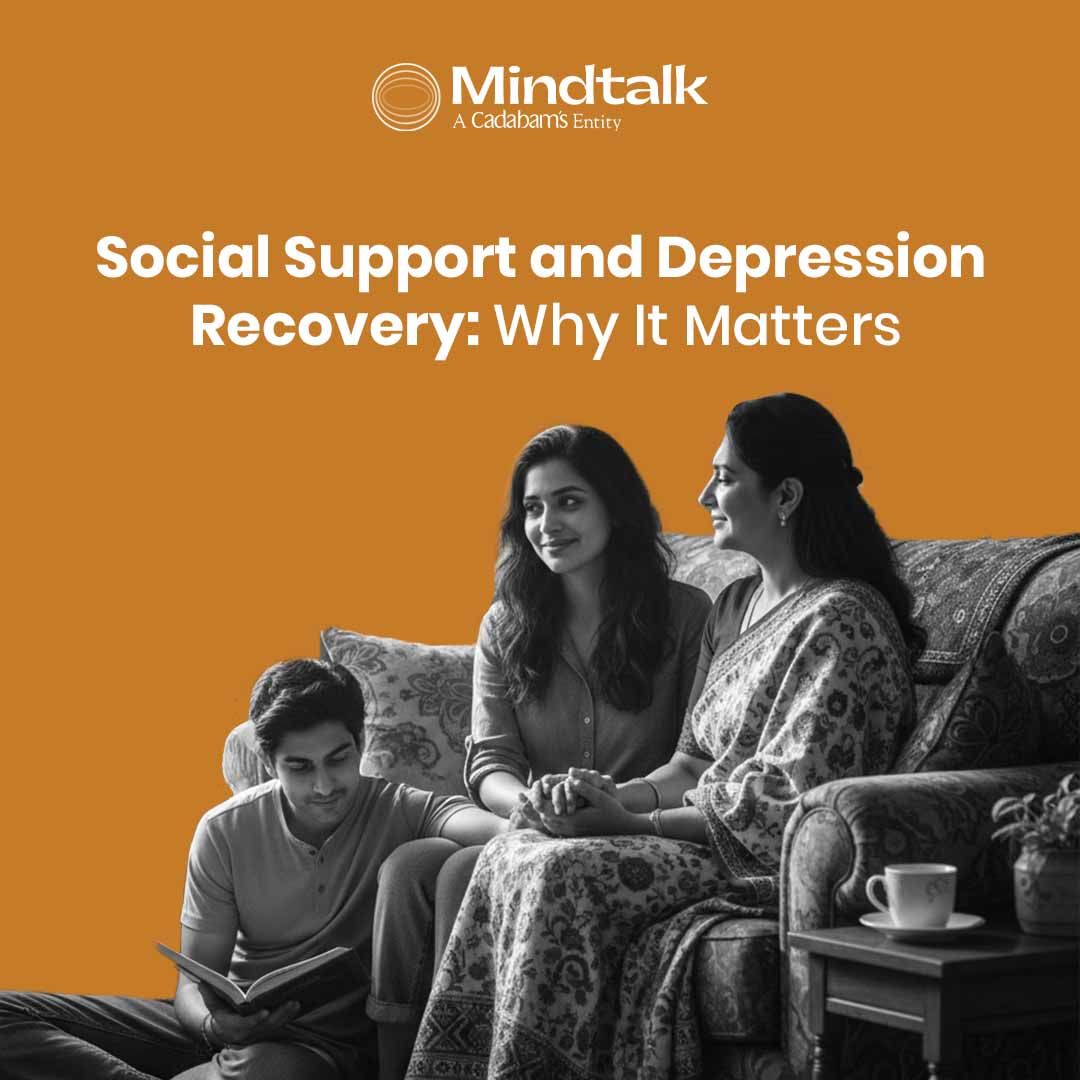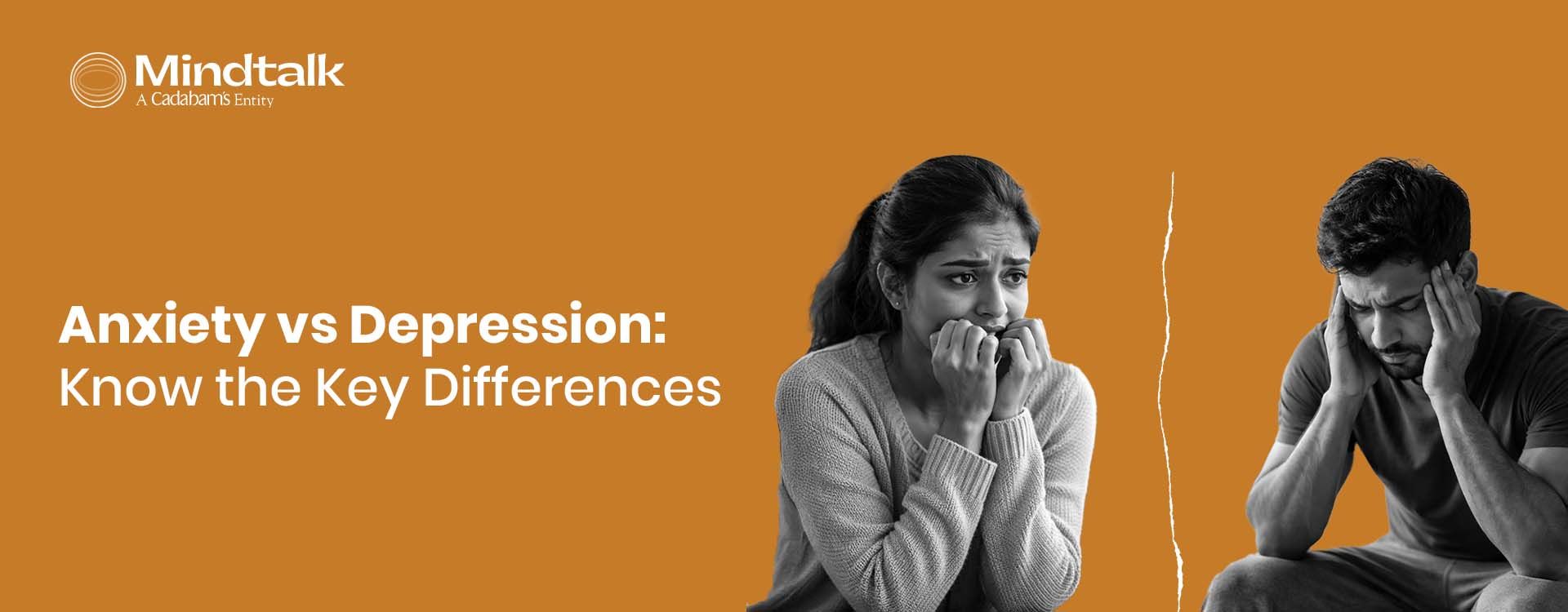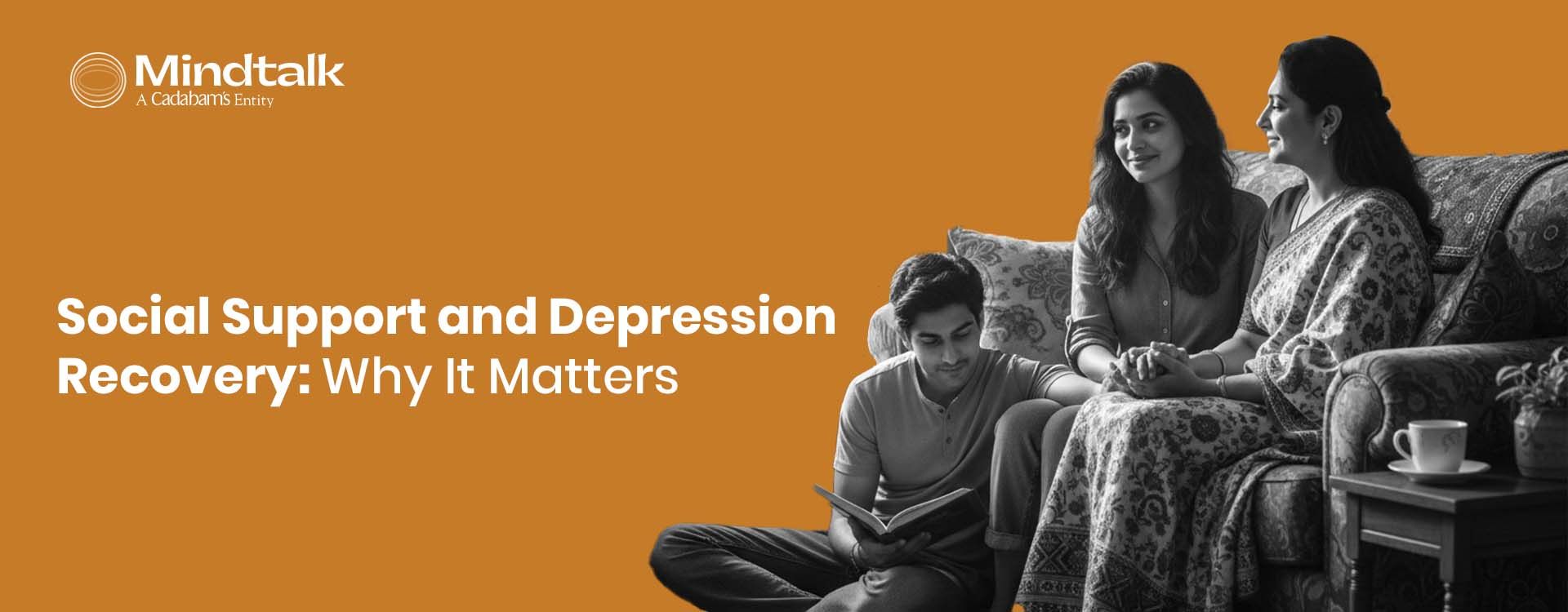Building a Support System: Why Strong Social Connections Are Key to Overcoming Depression
A person's healing process can benefit from social bonds and building daunting relationships. A person's overall emotional health, as well as the sense of acceptance, goes up due to relationships and social bonding, which combined help in recovering quicker from depression.
Friends, family members, or support groups can help make the situation not seem as bad, enabling easier coping. These bonds are critical, as they enable a person to be emotionally resilient in the future, and that is truly vital.

The Link Between Social Connections and Depression
Having robust social connections is essential with regard to one's mental health. Such supportive relationships serve to decrease undesired stress, enhance self-esteem, and improve emotional resilience.
On the other hand, being isolated serves to increase the feeling of loneliness and depression, demonstrating the need to maintain meaningful social bonds for overall psychological health.
How relationships impact emotional well-being
Engaging in social activities and relationships provides emotional support and helps people handle issues more effectively. Interacting with loved ones generates good feelings and relieves unwanted stress and anxious feelings.
Effective working relationships improve one's personal growth, stability, and happiness, positively affecting mental health and overall emotional well-being.
The science behind social support reducing symptoms of depression
Studies show social support boosts oxytocin and serotonin, improving mood. Strong relationships also lower cortisol, reducing stress and anxiety. A good support system helps develop coping skills, leading to better emotional regulation and resilience
Why isolation worsens mental health and increases stress levels.
Isolation increases cortisol, raising stress and discomfort. Long-term loneliness fuels negative thoughts, worsening depression. Lack of social interaction weakens emotional strength, making challenges harder to handle. To protect mental health, it's crucial to manage stress and maintain strong relationships.
Types of Support That Can Help with Depression
Support comes in different forms—emotional, practical, and professional—helping individuals find what works best for them. Each type offers guidance in its own way, making it easier for people to recognise the help they need.
Emotional support – the power of empathy and active listening
Conversations that involve active listening offers companionship that can ease the feeling of social loneliness. Such conversations can be offered by friends and family with the intention to and who are able to help disentangle emotions, which will give room for feelings of togetherness.
Practical support – how small acts of kindness ease burdens.
Helping with daily tasks like cooking, errands, or childcare reduces stress. Simple acts, like offering a ride or making a meal, provide relief. These small gestures help people focus on recovery without feeling overwhelmed by everyday responsibilities.
Professional support – therapy, support groups, and counselling.
Counsellors teach coping skills, while support groups provide shared experiences. Therapy, including CBT and medication, addresses mental health challenges. These resources improve emotional well-being and increase the chances of long-term recovery through structured guidance and peer encouragement.
How to Build a Strong Support System When You Feel Isolated
Strengthening relationships helps combat loneliness. Social connections create emotional support, boost self-worth, and contribute to mental well-being, making it easier to navigate challenges and build a strong support system.
Overcoming the fear of reaching out for help.
Seeking help feels challenging, but starting small makes it easier. Talk to a trusted friend or write down your feelings. Remind yourself that asking for help is a sign of strength, leading to emotional support, healing, and stronger personal connections.
Identifying trustworthy friends and family members for support.
Find people who genuinely care, listen without judgement, and respect your feelings. Reflect on past relationships to identify dependable supporters. Choose those who encourage positivity, create open communication, and help set healthy boundaries for emotional well-being and personal growth.
Finding new social connections through community, hobbies, and volunteering.
Building trust takes time, so connect with people who genuinely care. Join community activities, clubs, or volunteer work to meet like-minded people. Engaging in social activities helps create meaningful connections and reduces feelings of loneliness.
The Role of Family in Supporting Recovery from Depression
Family members play an integral part in the healing of a person with depression. Support, understanding, and patience, as well as emotional attention, provide a healing environment. Assistance in communication, provision of constructive guidance, and help making available other necessary resources aids the case.
How family members can provide emotional stability.
Emotional support helps those with depression feel valued and understood. Listening, showing concern, and spending time together build reassurance. Encouraging therapy and self-care strengthens emotional well-being and long-term recovery.
Setting Healthy Boundaries While Receiving Support
Establishing boundaries is essential when seeking support. Clearly express your needs, setting boundaries, and prioritise self-care. Avoid emotional exhaustion by ensuring mutual respect.
Educating Loved Ones About Depression to Improve Understanding
Helping loved ones understand depression builds empathy and support. Share reliable resources, encourage open talks and correct misconceptions. Education reduces stigma, helping them offer better support.
Awareness enables loved ones to recognise struggles and respond with compassion, creating a supportive environment that promotes healing and resilience.
Friendships and Their Power in Overcoming Depression
Friendships offer emotional support, comfort, and encouragement during tough times. A strong social circle reduces loneliness and boosts resilience.
Genuine connections foster belonging, helping individuals navigate depression with care and understanding. Meaningful friendships play a key role in emotional recovery.
The Unique Role of Friendships in Emotional Healing
True friendships offer emotional security and a safe space for vulnerability. Friends provide support, perspective, and companionship, easing loneliness.
Their consistent encouragement rebuilds self-worth and confidence. Strong friendships create belonging, easing emotional struggles and promoting healing.
How to Communicate Mental Health Struggles with Friends
Honest communication about mental health fosters understanding and support. Choose a trusted friend, express feelings openly, and clarify how they can help. Use "I" statements to avoid blame.
Transparent conversations strengthen bonds, creating a supportive space for navigating emotional challenges together.
Recognising Toxic Friendships and Setting Boundaries
Toxic friendships drain emotional energy and hinder healing. Recognise manipulation, excessive criticism, or lack of support. Prioritise self-care by setting clear boundaries and distancing yourself from negativity.
Healthy friendships should uplift, not exhaust. Choose relationships that encourage growth and well-being, ensuring a positive and supportive social environment for recovery.
Online Communities and Support Groups for Depression
These groups help people with depression connect, share experiences, and find comfort. They offer accessibility, anonymity, and a safe space for support. However, they should supplement therapy, especially for children, and be well-moderated for productive interactions.
The benefits of digital spaces for mental health support.
Online platforms provide 24/7 access to people facing similar struggles. Anonymity reduces fear of judgement, encouraging open discussions.
These communities offer support, coping strategies, and a sense of belonging but should not replace professional therapy when necessary.
Finding safe and reputable online forums.
Safe forums are well-moderated, follow clear rules, and foster a respectful environment.
Mental health-focused forums often have licensed counsellors. Platforms promoting self-harm should be shut down to protect vulnerable users, especially children.
The pros and cons of virtual vs. in-person support.
Virtual support offers anonymity, accessibility, and global reach but lacks intimacy and immediate crisis help. In-person support builds emotional bonds and provides physical comfort but requires time and effort for travel and scheduling.
Seeking Professional Help: When and Why It's Necessary
Seeking professional help is necessary when there are some symptoms associated with emotional distress, anxiety, and depression which interfere with day-to-day life. Caring self-help and social support aid, but there are some issues that need specialist help.
Recognising when professional intervention is needed.
Professional help is needed for ongoing distress, severe sadness, social withdrawal, or major routine changes. Experts provide long-term care using self-sufficient, healthy living strategies to support mental and physical well-being.
How therapy and counselling complement social support.
Therapy teaches coping strategies, while social support provides emotional comfort. A therapist guides healing, and counselling builds self-awareness. Together, they improve mental health and overall well-being.
Types of mental health professionals and treatment options.
Psychologists, psychiatrists, counsellors, and therapists offer different treatments like CBT, medication, psychotherapy, and alternative medicine. The right professional provides tailored care for emotional and mental well-being.
Overcoming Barriers to Seeking Social Support
There may be gaps in social support because of stigma, fear, or lack of information. Working on these issues can improve interpersonal relations and overall emotional functioning.
Fear of Judgment & Stigma
A person is most likely to not seek support because of being judged. Having a talk about some unique topics, such as 'the stigma surrounding mental health' can be useful in cultivating a welcoming approach towards mental health.
That's why safe spaces need to be created so that the challenges an individual faces can be discussed openly.
Social Anxiety & Isolation
Withdrawal due to depression makes it so that socialising becomes a near-impossible task. As you become more at ease, take a few additional steps toward social engagement.
If need be, feel free to start with texting especially if using support groups online or going outdoors is intimidating. Always keep in mind that the process of reconnection takes longer than anticipated.
When Loved Ones Don't Understand
Depression has little understanding, and as a result, loved ones need to be equipped with appropriate details alongside your stories so that the need to understand is fostered. Define discussions and behaviours while ensuring that you allow for what is deemed helpful.
The Impact of Social Support on Long-Term Recovery
Support from others improves emotional well-being and aids long-term recovery. Close, encouraging friends help people cope with stress and prevent relapse.
Positive social connections provide comfort, motivation, and a sense of belonging, making the recovery process smoother and more effective over time.
How consistent support helps prevent relapse.
Having a reliable support system significantly reduces the risk of relapse. Encouragement from family, friends, and support groups fosters resilience, providing emotional stability during challenges.
Knowing someone cares boosts motivation, helping individuals stay committed to recovery goals and develop healthier coping strategies, ultimately leading to long-term success and stability.
The importance of staying socially connected over time.
Strong social connections provide emotional support, reduce loneliness, and lower stress. Positive interactions offer encouragement and accountability, helping with recovery. Over time, these bonds boost self-esteem, improve mental health, and make long-term well-being easier to maintain.
Building a lifelong support network for mental well-being.
A strong support network improves emotional well-being. Meaningful relationships, support groups, and community activities help people cope with challenges. This network offers guidance, reduces loneliness, and supports long-term emotional stability and personal growth.
How Mindtalk Brings Positivity and Eases Depression
Mindtalk fosters positivity with expert guidance, meaningful conversations, and supportive communities. It offers a safe space to express emotions. Through mindfulness and cognitive reframing, it enhances self-awareness, resilience, and long-term emotional well-being.
Psychotherapy: Talk Therapy
Talk therapy allows open discussions with therapists to process emotions, build coping skills, and shift negative thoughts. Approaches like CBT and DBT enhance self-awareness, emotional control, and mental resilience, helping individuals navigate challenges and improve overall well-being.
Acceptance and Commitment Therapy (ACT)
ACT helps individuals accept difficult emotions rather than avoid them. It uses mindfulness, cognitive diffusion, and values-based actions to build emotional strength.
Through self-reflection and guided exercises, ACT fosters resilience, allowing individuals to manage distress while maintaining personal growth and fulfilment.
Music Therapy
Music therapy uses rhythm, melody, and sound to boost mood and reduce stress. Listening to music, making sounds, or playing rhythms helps relaxation. It stimulates the brain, encourages self-expression, and provides a healthy way to process emotions, supporting mental well-being.
How Mindtalk Supports Your Journey to Overcoming Depression
Mindtalk offers a protected space for people struggling with depression through professional help, peer support, and self-help guides.
Users also learn strengthen their emotional intelligence through resilience-building programs which aid in confidence restoration and effective coping mechanism development.
To aid in overcoming situations, Mindtalk encourages proactive emotional discussions as well as maintaining one's mental and emotional health. This assists people in overcoming depression and sustaining happiness.



